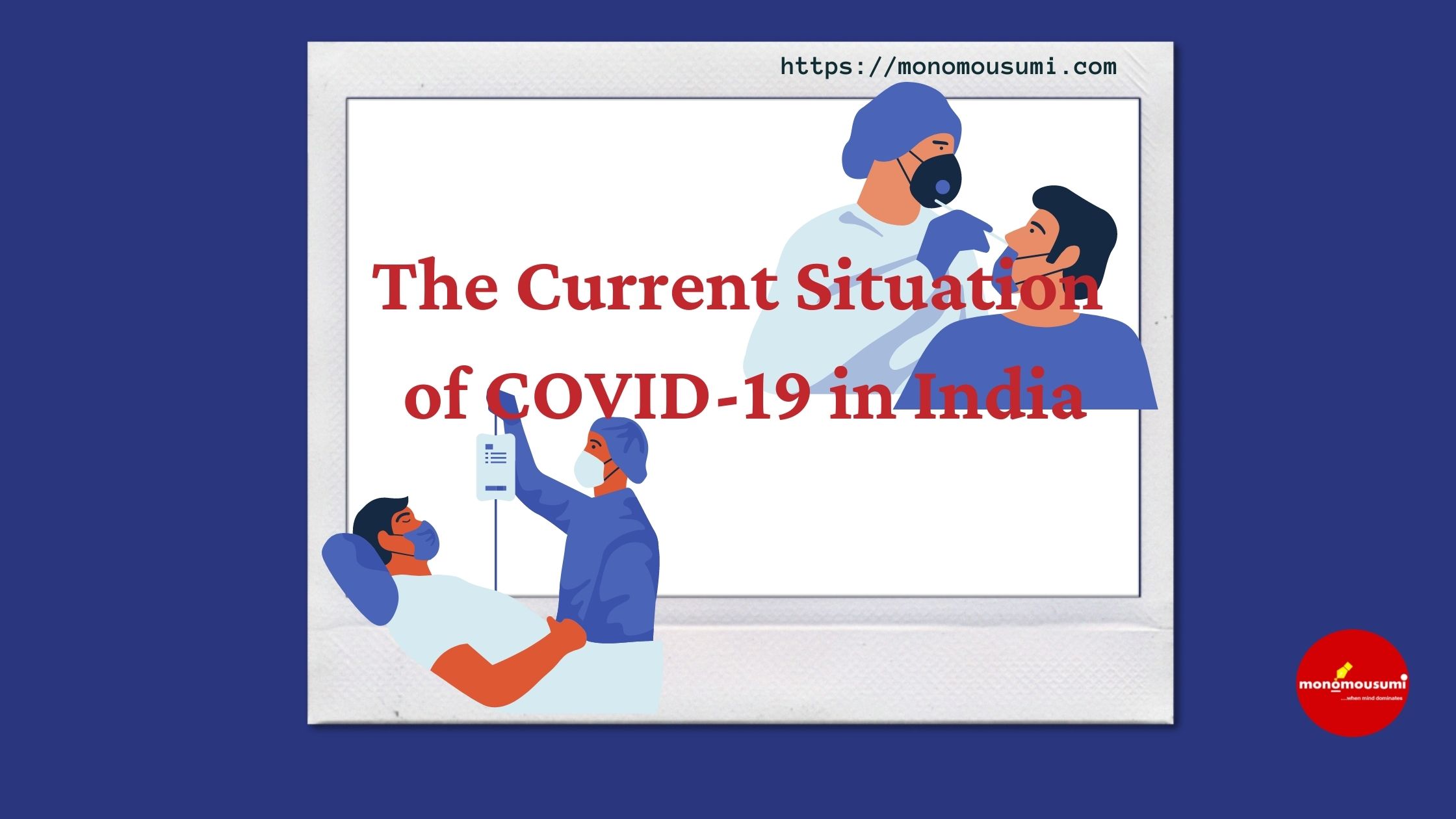
Perhaps no one in this 21st century had ever thought that human life is going to face such an unprecedented pandemic-like situation as caused by the virus, Severe Acute Respiratory Syndrome- CoronaVirus-2 (SARS CoV-2). Starting from the Wuhan city of China, the virus very soon got the entire world into its clutches. Large number of countries imposed travel bans for the people coming from China but it could not stop the virus from reaching their countries. Very soon this tiny virus that could not even be seen with the unaided eyes, had started showing its replicating and mutating ability and compelled the world to look after their health care infrastructure.
The existing health infrastructure is a matter of great concern especially in the developing, underdeveloped and least developed countries. Rural-Urban divide creates another problem. In India, while most of the population live in villages, their medical care facility is limited to primary health care. They have to go for several miles to reach the hospitals located in big cities to get the secondary and tertiary care. The poor people who do not have any health insurance, have to pay the hospital bills out of their pockets. While most government hospitals in big cities run at their full capacity and have very long waiting times, the private hospitals have turned into corporate houses. They consider profit before their professional ethics and charge very hefty fees. Looking for treatment the poor family sell their assets and sometimes take loans at very high interest rates. We have witnessed the situation when a wife had to mortgage her Mangal Sutra (necklace which is a symbol of marriage) just to get 3 Remdesivir injections which costed her 90 thousands INR to save her husband from the COVID-19 but she failed.
The problem in the urban areas is slightly different. Most of the urban population in India are witnessing high to severe levels of air and water pollution which is impacting their health day by day. The adulterated food supply, high salt and trans fat content in food products is leading to metabolic and lifestyle related disorders. Diabetes, High Blood Pressure, Obesity and Cardiovascular diseases are becoming common in each family. The second wave of the COVID-19 had again tested our preparation. Perhaps we had not learnt from the first wave and made the second wave inevitable. The healthcare infrastructure looked crumbled, shortage of medical grade oxygen and scarcity of hospital beds and ambulances took the lives of thousands. The burial sites were flooded with dead bodies. Some people could not afford the burial facility, they preferred to throw the dead bodies in the rivers like Ganga and Rapti. At the same time the people were dying, some profiteers were busy in black marketing of Oxygen, essential drugs and ambulance facilities. The COVID-19 also made us think about mental health. Due to loss of income during the lockdown imposed, most people faced mental trauma while looking for food security for their families. Some people lost their loved ones in this pandemic while some kids became orphaned.
The former U.S. president, Mr. Donald Trump criticized the opaqueness of China and the functioning of the World Health Organisation (WHO) and opted to move out from the WHO. This was going to severely impact the funding of WHO and consequently the help to the poor countries. Thank to the next president Mr. Joe Biden who brought the U.S. back into WHO. Vaccine nationalism is again becoming an issue in the developed world as they have pre booked more than required vaccine supply for their citizens while the poor African and south asian countries are still hoping for some supply. India took a step in this regard by launching Vaccine Maitri which provided millions of doses of vaccines to poor countries.
To tackle this extraordinary situation, the developed northern countries need to think beyond their vaccine nationalism and should help the underdeveloped countries of the southern hemisphere. Waiver on the Intellectual Property Rights (IPR) under the World Trade Organisation (WTO) on the drugs and vaccines related to COVID-19 should be considered as long as the entire globe is not getting fully vaccinated. China should be penalised for making delay in providing the information related to the outbreak of this pandemic and the WHO should work to prevent any similar future pandemic. A mass awareness programme is required to reduce vaccine hesitancy and this can be done by making cartoons, statues of Coronavirus and telling the people about the safety of the vaccines. In this pandemic situation, we should not forget about the other diseases. More focus should be on maternal and child care and gradually eliminating their mortality rates. In India, the government had already taken steps by launching schemes like Ayushman Bharat – Pradhan Mantri Jan Arogya Yojana (PMJAY) to provide health insurance to 10 crore families to reduce their out of pocket expenditure. Pradhan Mantri Matru Vandana Yojana (PMMVY) and Janani Suraksha Yojana (JSY) to provide better health care facilities to the pragnant women and lactating mothers. Midday Meal is another scheme to fulfil the nutritional requirement of children in their schools. The Food Safety and Standards Authority of India (FSSAI) has capped the trans fat limit in processed foods to 3% for 2021 and 2% for 2022 onwards. This will reduce the cases of lifestyle disorders. The practice of yoga should never be undermined as it provides both physical and mental wellness. Most importantly the focus should be on rural health. More government hospitals and medical colleges need to be established in rural areas.
Thus an integrated approach is required to improve our health infrastructure where different ministries like Ministry of Health and Family Welfare and Ministry of Ayush and bodies like the Central Drugs Standard Control Organisation (CDSCO), NITI Aayog, Indian Council of Medical Research (ICMR), Council of Scientific & Industrial Research (CSIR), Department of Biotechnology for improving the health infrastructure. The good Centre-State relations at domestic level and better coordination among countries at the global level are the need of the hour to make our system future ready and then only we can create a healthy post COVID-19 world.
By Ravindra Kumar, Uttar Pradesh


